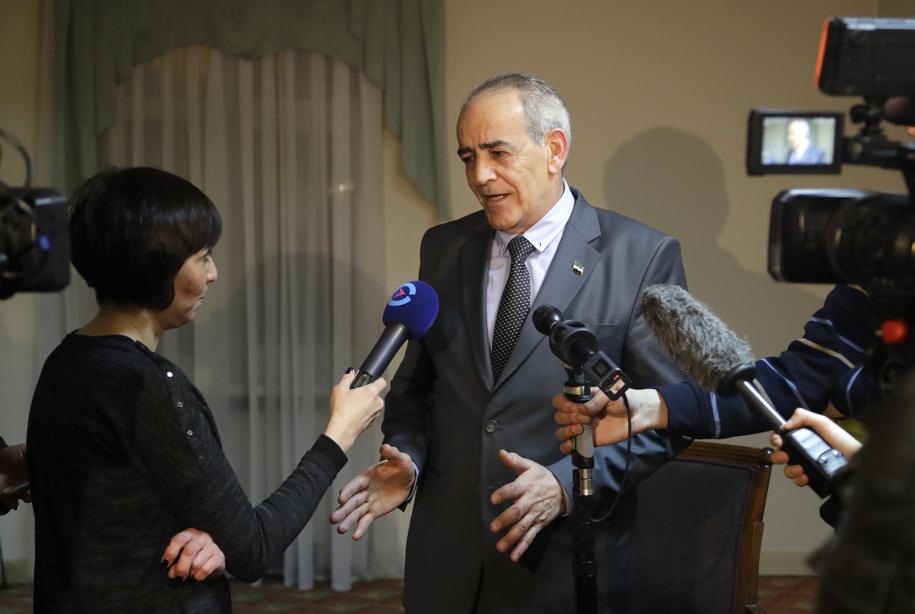
ASTANA, Kazakhstan — Delegates from Russia, Turkey, and Iran held hours-long talks in Kazakhstan on Sunday on the eve of negotiations between Syrian rebels and President Bashar Assad’s government.
The parties are trying to forge common ground that would nudge forward a political settlement of the country’s six-year civil war.
Representative of Syrian opposition groups also held a preliminary meeting Sunday, signaling that they would focus first on shoring up the cease-fire and leave for later the divisive issue of replacing the Assad regime.
The talks between the two warring sides are the first in a year, and are meant as a first step to consolidate a cease-fire reached last month.
Whether Russia and Turkey will manage to bolster the cease-fire they brokered on Dec. 30 will be a key measure of success for the Astana meetings, Syrian opposition spokesman Yahya al-Aridi told reporters in the Kazakh capital Sunday.
The opposition delegation, which arrived in Astana earlier in the day, is made up of about a dozen rebel figures led by Mohammad Alloush, of the powerful Army of Islam rebel group. The Syrian government is sending its UN ambassador, Bashar Ja’afari, and military delegates.
The UN’s Syria envoy, Staffan de Mistura, is participating in the talks, which are to be followed by more political talks in February in Geneva.
The new US administration is not directly involved, because of the ‘‘immediate demands of the transition,’’ the State Department said Saturday, but Washington will be represented by the US ambassador to Kazakhstan, George Krol.
The talks are sponsored by Russia, Iran, and Turkey, and are the latest attempt to forge a settlement to end a war that has by most estimates killed more than 400,000 people since March 2011 and displaced more than half the country’s population.
At the top of the agenda for the talks, which will be held at the Rixos President Hotel, is an effort to consolidate last month’s cease-fire. The truce excludes extremist groups such as the Islamic State and the Al Qaeda affiliate in Syria. It has reduced overall violence, but fighting and violations continue on multiple fronts.
‘‘If this can be achieved, this can help the political process,’’ said Aridi.
The scope of the aims reflects the constrained position of the opposition, which last year was pushing for a political transition in Syria that would exclude Assad.
Aridi said there was no plan to discuss Assad’s position before addressing what he said were ongoing government violations of the cease-fire.
‘‘I don’t think there’s a context for that now. Nobody is ready for this,’’ Aridi told reporters in Astana. ‘‘We need a commitment to that cease-fire.’’
‘‘If the other side doesn’t care about stopping the bloodshed in Syria, and cares most about staying in power at the expense of Syrian blood. . . . in that case, nothing will work,’’ he said. Reflecting the enormous distrust at play, he described the Iranians as ‘‘spoilers’’ and ‘‘occupiers’’ and claimed they are not serious about the entire process.
Iran and Russia have provided key financial and military support to Assad’s government, while Turkey has backed the opposition.
Ja’afari told reporters on the plane to Astana that in addition to cease-fire talks, a priority was to ‘‘unify efforts to combat terrorism.’’ He said the meeting will ‘‘test the credibility and seriousness of participants sitting around the table and those who support them.’’



